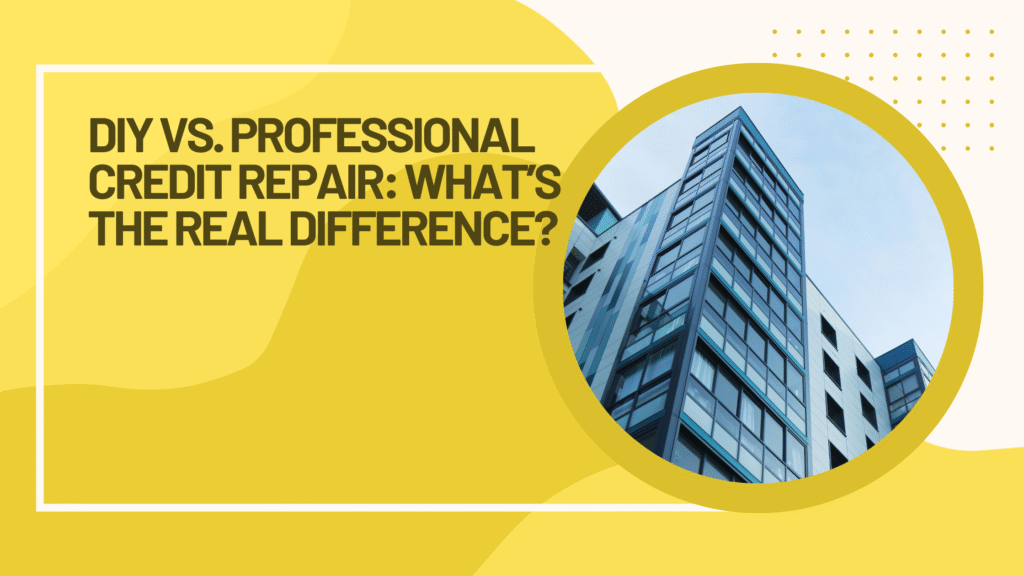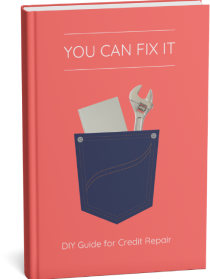Your credit score plays a huge role in your financial life. From getting approved for a mortgage or car loan to qualifying for the best interest rates on credit cards, your credit score influences almost every major financial decision.
If your credit isn’t where you want it to be, you’ve probably come across two main paths to fixing it: DIY credit repair and professional credit repair services. Both options can help you improve your credit, but they differ in process, cost, time commitment, and overall effectiveness.
Let’s break down the real differences between DIY and professional credit repair, so you can make the best choice for your situation.
1. Understanding the Credit Repair Process
Before we compare the two, it’s important to understand what credit repair actually involves.
Credit repair is the process of identifying and addressing negative or inaccurate information on your credit reports that could be dragging down your score. This can include:
-
Late or missed payments
-
Collections or charge-offs
-
Inaccurate personal information
-
Duplicate accounts
-
Identity theft–related accounts
-
Outdated negative marks that should have expired
The Fair Credit Reporting Act (FCRA) gives you the legal right to dispute any inaccurate or unverifiable information on your credit reports. Whether you do it yourself or hire a professional, that’s the core of the credit repair process.
2. The DIY Credit Repair Approach
Doing your own credit repair means taking full control of the process. You’ll need to:
-
Request Your Credit Reports – You can get free copies from all three major bureaus (Equifax, Experian, and TransUnion) once a year at AnnualCreditReport.com.
-
Review for Errors – Look for incorrect balances, payment histories, accounts you don’t recognize, or outdated negative items.
-
File Disputes – Send letters (or submit online forms) to credit bureaus, explaining the errors and requesting that they be removed or corrected.
-
Follow Up – The bureaus usually have 30 days to investigate and respond. You may need to provide additional documentation or clarification.
-
Monitor Your Progress – Keep track of your credit reports and scores over time to confirm that corrections are made and no new issues arise.
✅ Pros of DIY Credit Repair
-
Free or low-cost: You don’t have to pay anyone to handle your disputes.
-
Hands-on control: You’ll understand your credit better by handling it yourself.
-
Flexible pace: You can work on your timeline and focus on specific items.
❌ Cons of DIY Credit Repair
-
Time-consuming: Gathering documents, sending disputes, and following up can take weeks or months.
-
Requires knowledge: You need to understand credit laws and how bureaus operate.
-
Easy to make mistakes: Incorrectly written disputes or lack of evidence can lead to rejections.
-
Limited support: You’re on your own if things get complicated or a creditor resists correction.
DIY repair can work if you’re organized, patient, and willing to study the process. But for most people, credit repair can be overwhelming—especially when dealing with multiple issues or inaccurate collections.
3. The Professional Credit Repair Approach
Professional credit repair services specialize in helping people improve their credit scores efficiently and legally. They typically follow a structured process that includes:
-
Comprehensive Credit Analysis: Reviewing your reports from all three bureaus to identify damaging or questionable items.
-
Personalized Dispute Strategy: Creating dispute letters and documentation on your behalf based on what’s most likely to succeed.
-
Communication with Bureaus and Creditors: Handling all correspondence and tracking investigation timelines.
-
Ongoing Monitoring: Keeping track of your credit as updates occur and addressing new items if they appear.
-
Credit Coaching: Many reputable companies also provide guidance on budgeting, debt management, and responsible credit use.
✅ Pros of Professional Credit Repair
-
Expertise and experience: Professionals understand credit laws, including the FCRA and FDCPA, which helps them craft stronger disputes.
-
Saves time: They handle all the paperwork and follow-ups for you.
-
Higher success rate: Because of experience and systematic processes, results often come faster.
-
Credit education: Many companies include personalized advice to help you maintain long-term credit health.
❌ Cons of Professional Credit Repair
-
Cost: Services typically charge a monthly fee or per-item fee.
-
Scams exist: Not all credit repair companies are legitimate, so choosing a trusted provider is crucial.
-
No instant results: Even professionals need time—usually 3 to 6 months—to show significant improvements.
4. Cost Comparison
When you repair your own credit, your main expenses are postage, copies, and possibly credit monitoring—so the cost can be under $50.
Professional credit repair services, however, typically range from $79 to $149 per month, depending on the level of service.
That said, it’s important to view professional credit repair as an investment, not just a cost. If your improved credit score helps you qualify for a lower mortgage rate, better car loan terms, or higher credit limits, the savings can far outweigh the fees.
5. Time and Effort: What’s Your Credit Worth to You?
DIY credit repair can take dozens of hours—researching, writing, and tracking progress. If you have multiple negative accounts or limited knowledge of credit laws, it can quickly become frustrating.
Professional services, on the other hand, can streamline the process dramatically. They know which disputes are worth pursuing, how to phrase letters effectively, and how to navigate pushback from creditors.
In short, if your schedule is tight or you’d rather not deal with complex paperwork, hiring a pro might be the better route.
6. The Risk Factor
When you go the DIY route, the main risk is human error—sending disputes incorrectly, missing deadlines, or failing to follow up. You also risk hurting your credit further if you accidentally dispute legitimate accounts or close accounts prematurely.
With a professional service, the risk lies in choosing the wrong company. Some “credit repair” companies make unrealistic promises like “We’ll erase all negative items instantly!” or “Guaranteed 800 credit score in 30 days.” These are red flags—no one can legally guarantee such results.
To protect yourself, choose a company that:
-
Is transparent about pricing and process
-
Provides written contracts and cancellation terms
-
Does not charge upfront before services begin (as required by the Credit Repair Organizations Act)
-
Has positive reviews and real customer testimonials
7. Which Option Is Right for You?
If you have:
-
Only a few minor errors on your credit report, and
-
The time and patience to learn the process —
Then DIY credit repair might be all you need.
But if you have:
-
Multiple negative accounts, collections, or charge-offs
-
Little time or expertise to manage the process
-
A major financial goal (like buying a home or car) within the next 6–12 months —
Then professional credit repair is likely the smarter, faster, and more effective choice.
8. Final Thoughts: Your Credit Is an Investment
Repairing your credit isn’t just about fixing numbers—it’s about unlocking financial opportunities and peace of mind.
Whether you choose the DIY route or hire professionals, the most important thing is taking action. Ignoring credit issues only allows them to persist and cost you more in the long run.
If you’re serious about improving your credit and want expert guidance every step of the way, a professional credit repair service can be a powerful ally.
With the right strategy, persistence, and support, you can rebuild your credit, regain confidence, and move toward a brighter financial future.





